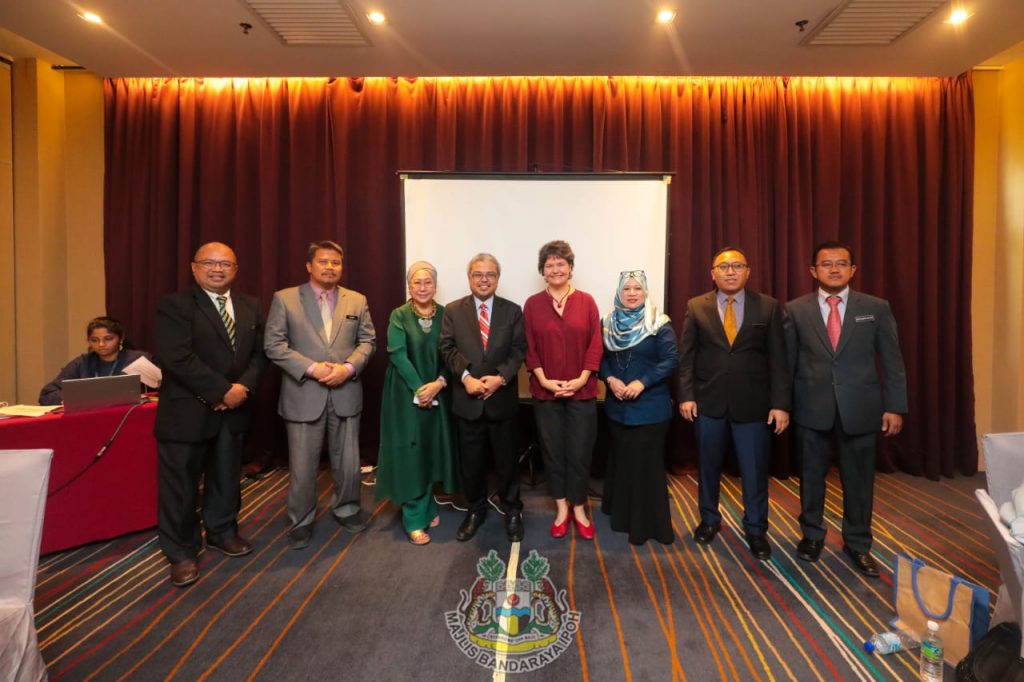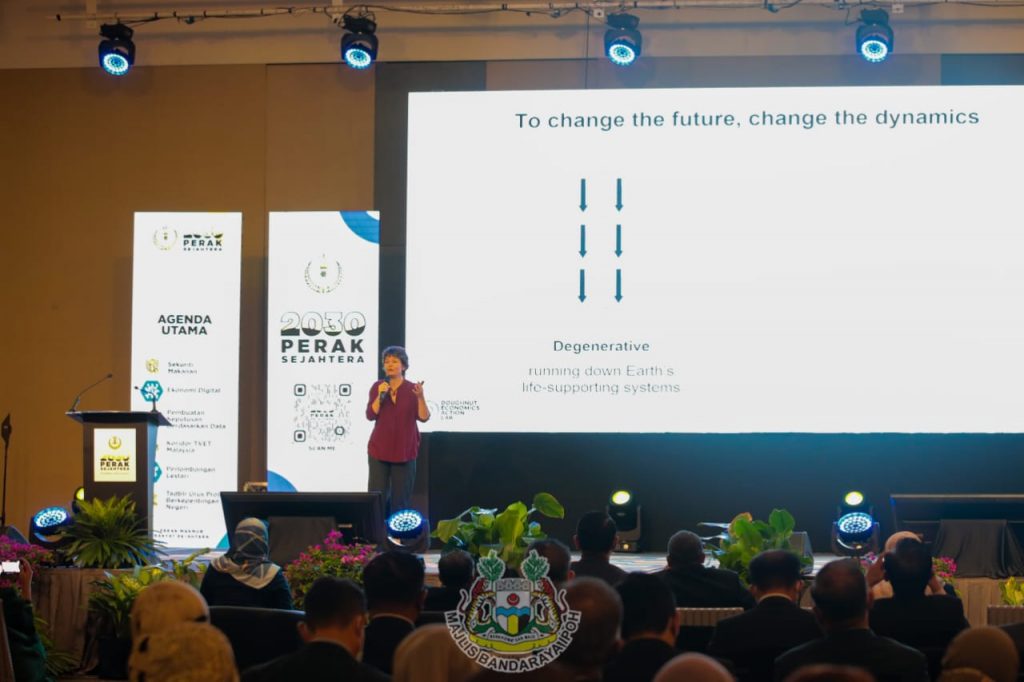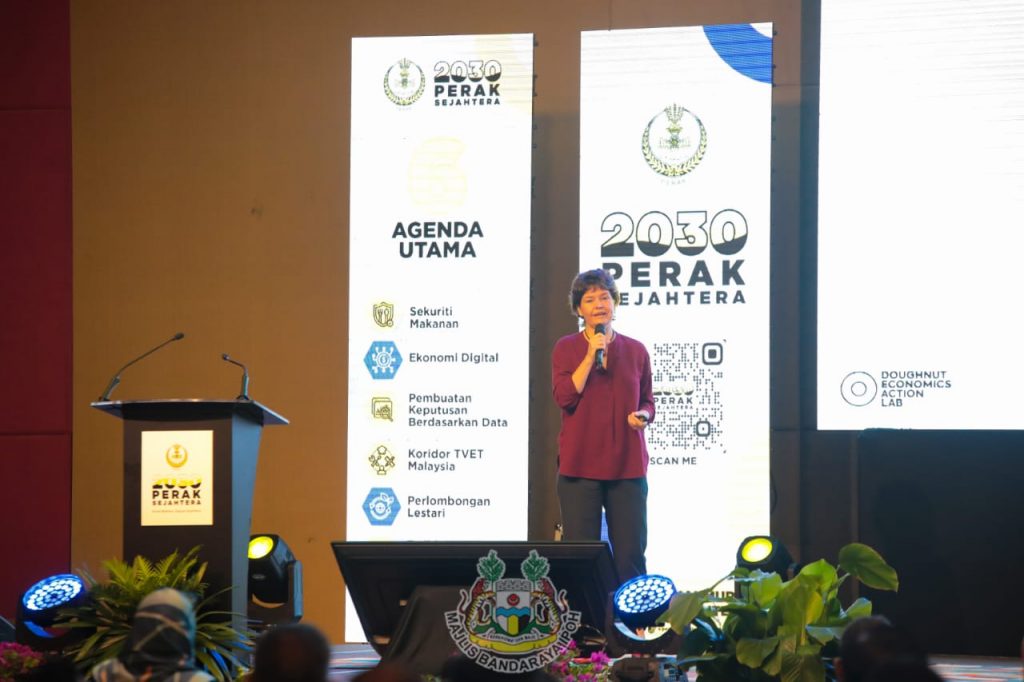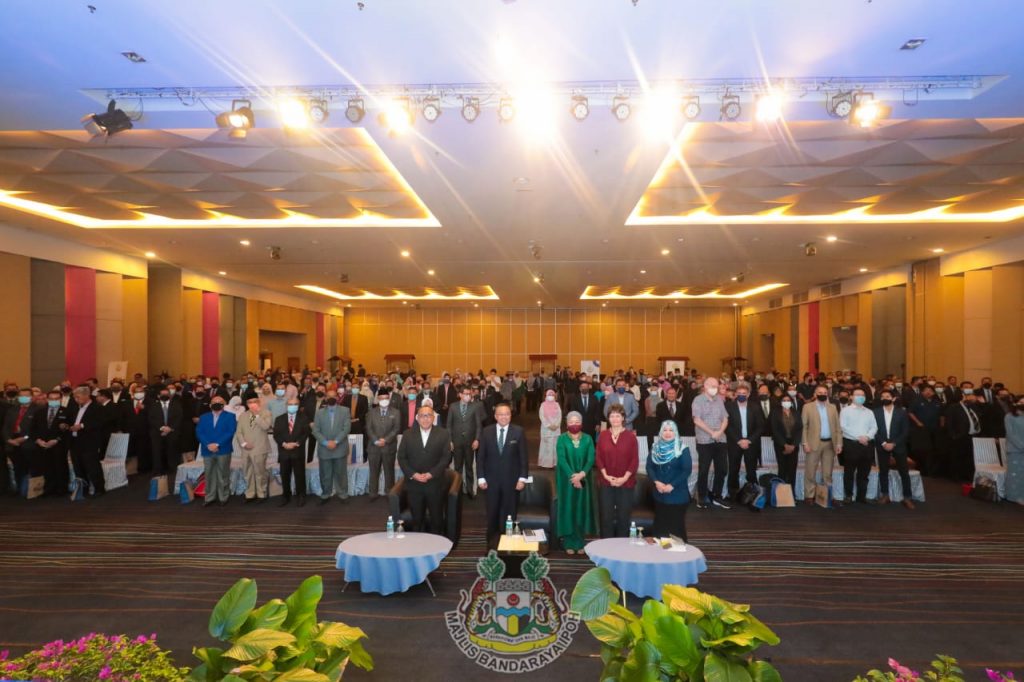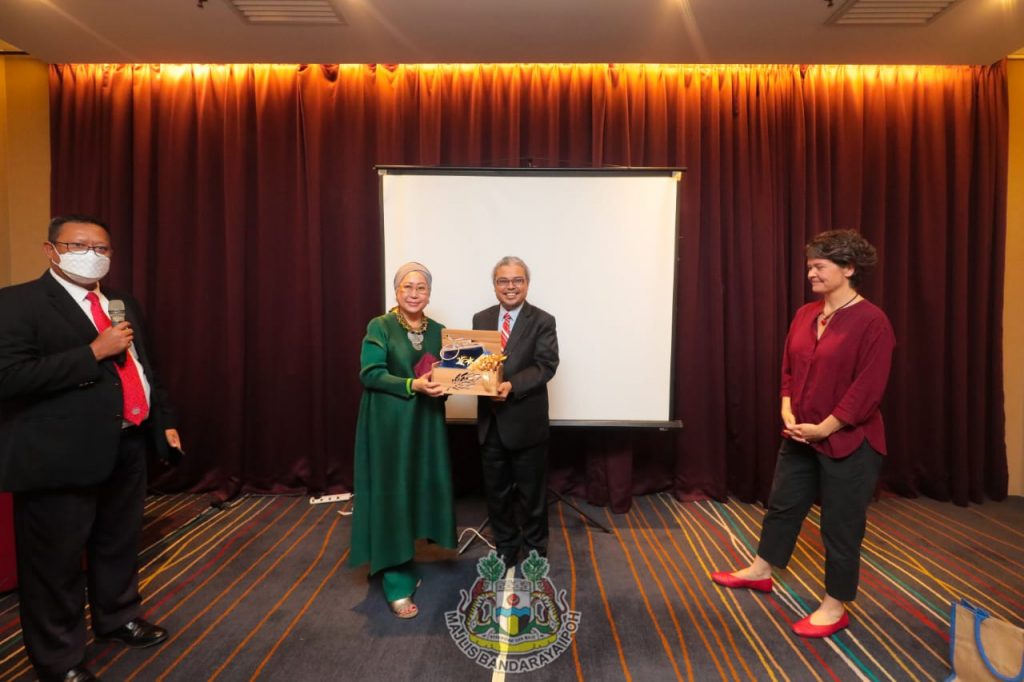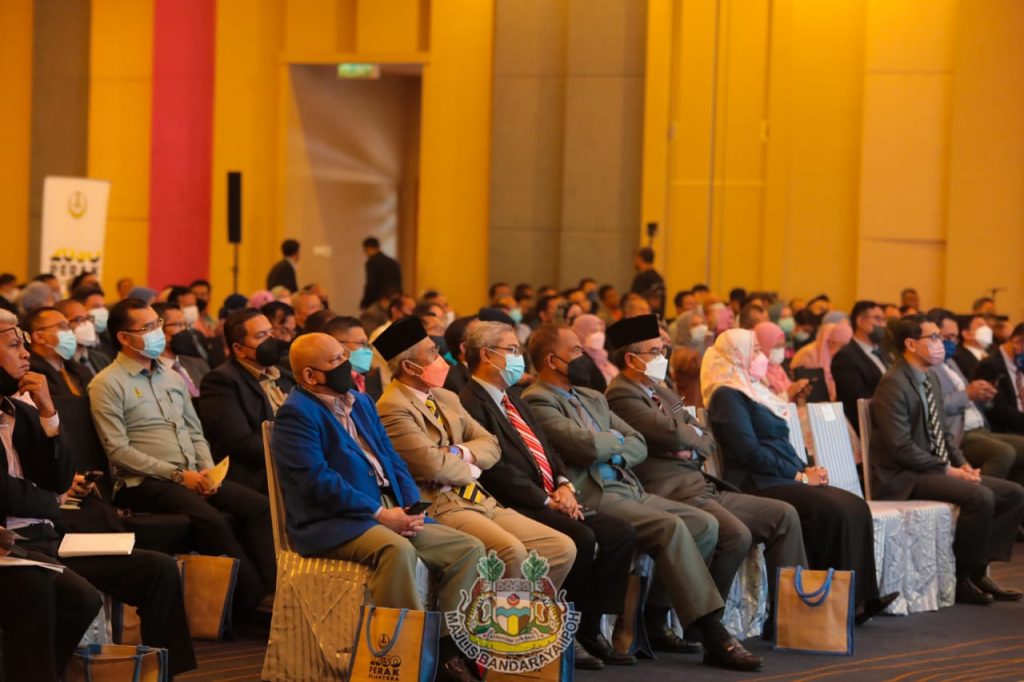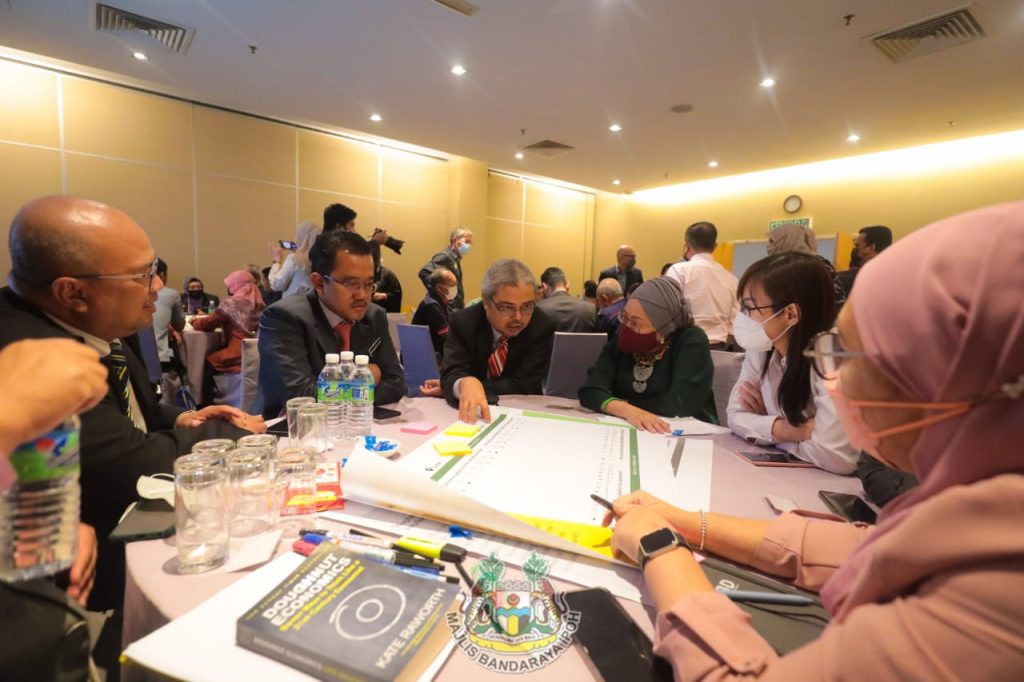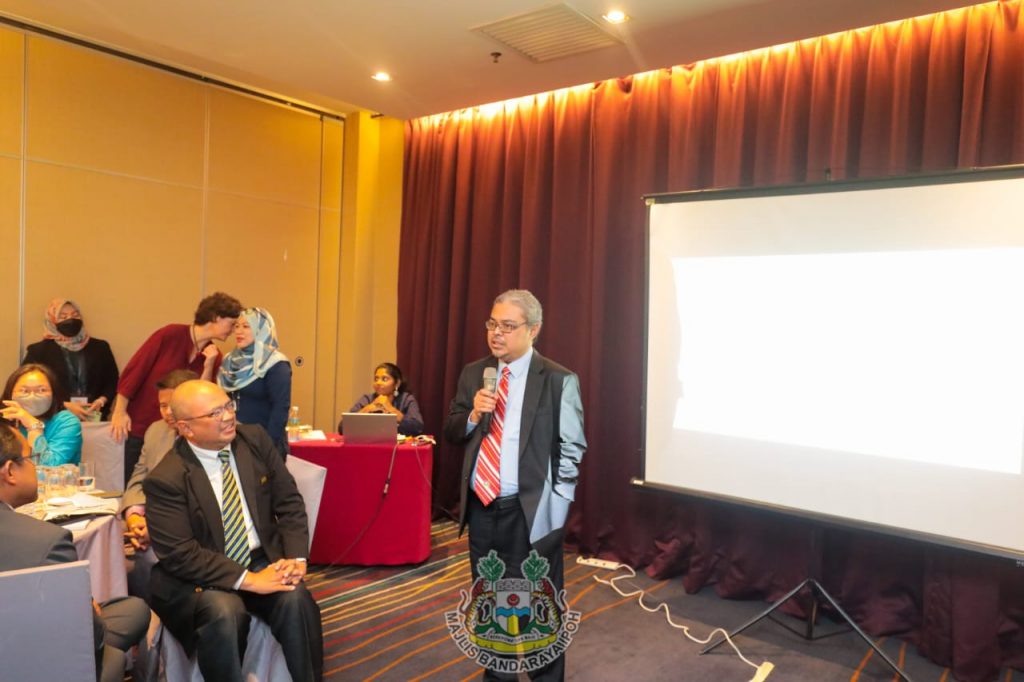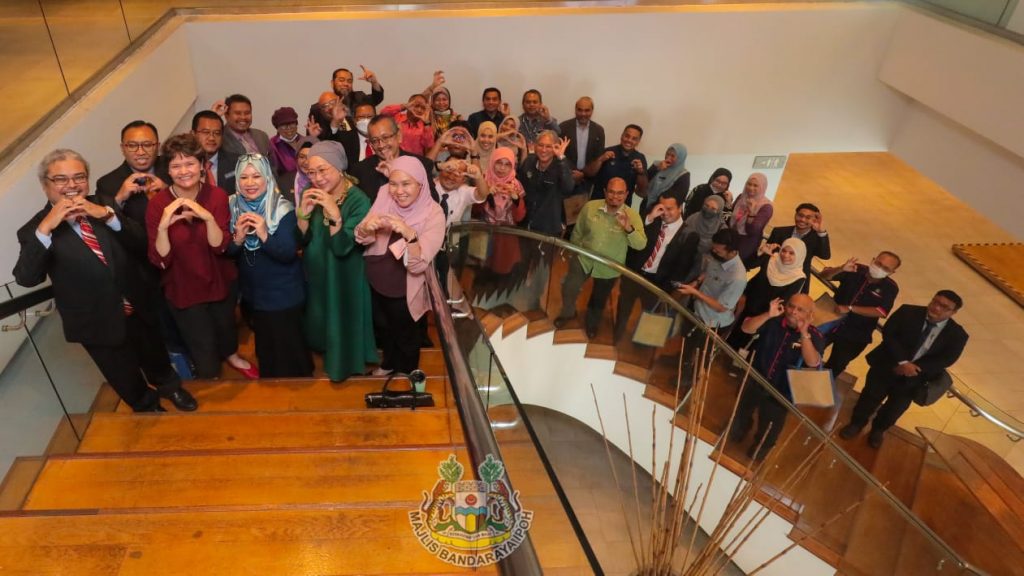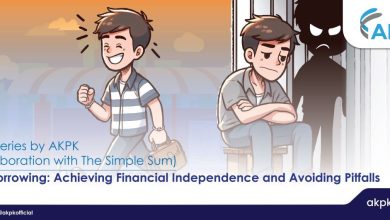Ipoh To Be Doughnut Economic City 2027
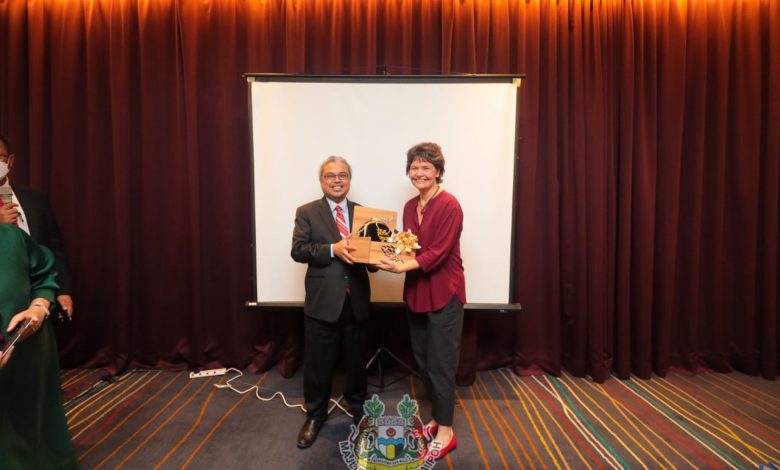

The Doughnut Economic Workshop: Remaking the Future of Cities, will be the pilot project towards implementing the agenda for Ipoh to become a Doughnut Economic City by 2027.
To quote from Wikipedia: The Doughnut, or Doughnut economics, is a visual framework for sustainable development – shaped like a doughnut or lifebelt – combining the concept of planetary boundaries with the complementary concept of social boundaries. The name derives from the shape of the diagram, i.e. a disc with a hole in the middle. The centre hole of the model depicts the proportion of people that lack access to life’s essentials (healthcare, education, equity and so on) while the crust represents the ecological ceilings (planetary boundaries) that life depends on and must not be overshot. The diagram was developed by University of Oxford economist Kate Raworth in her 2012 Oxfam paper A Safe and Just Space for Humanity and elaborated upon in her 2017 book Doughnut Economics: Seven Ways to Think Like a 21st-Century Economist and paper.
The Mayor of Ipoh, Dato’ Rumaizi Baharin @ Md Daud said the doughnut economy workshop that took place today was organized by the Darul Ridzuan Institute (IDR) and the Perak State Economic Planning Unit (UPEN).
The founder of Doughnut Economics, Professor Kate Raworth was present to conduct the workshop.
Also present were the local authorities, which included Batu Gajah District Council, Kampar District Council, Kuala Kangsar District Council, Perak Tengah District Council and Head of Department of Ipoh City Council (MBI).
Rumaizi hopes that organising the workshop will achieve the goal of making Ipoh the Doughnut Economic City by 2027.
Perak Sejahtera 2030 also previously outlined the Flagship Programme, Ipoh Doughnut Economic City 2027.
Through the plan, the recognition of Ipoh as the first Doughnut economy city in the Asian region was also stated.
It places the state of Perak in line with the leading countries in global environmental sustainability in planning and implementing socioeconomic development.
The network that will be established through this recognition can be used for inclusive branding and empowerment of the state.
The media reported that the concept of the doughnut economy has gradually begun to be implemented on a municipal scale.
Previously, Amsterdam announced the use of the model to improve the post-Covid-19 economy through economic planning in the city.
This model is used to change the way of evaluating economic competition while considering its impact on the urban environment.
In addition, this model serves as a framework for sustainable development by integrating the concept of environmental boundaries with the complementary concept of social and economic well-being.
by Rosli Mansor Ahmad Razali
